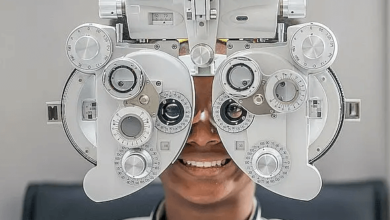8 Signs You Should Call a Doctor Immediately

Hesitancy can cause a treatable condition to become a medical emergency when warning symptoms show up. Knowing exactly when to call expert help will preserve your health—and even save your life—instead of expecting symptoms to go away on their own. On-demand medical services in Dubai bring skilled doctors wherever you need them. You can obtain professional examination and treatment without waiting in a packed ER by just phoning a doctor at Dubai hotel.
- Crushing Chest Pain or Pressure
Especially if it radiates to your arms, jaw, neck, or back, a squeezing feeling, heaviness, or acute pain in your chest can point to a heart attack or unstable angina. Even modest discomfort calls for attention: early treatment greatly lessens heart muscle damage. Call a doctor at hotel Dubai for an on-site ECG, quick aspirin administration, and fast coordination with emergency services instead of toughing it out or driving oneself to the hospital. Minutes count at these pivotal times. A qualified doctor can help you through first aid, separate cardiac episodes from less major causes like acid reflux, and arrange quick hospital transfers. Acting quickly not only raises survival rates but also helps to minimize long-term effects, including arrhythmias or decreased heart performance.
See also: Comprehensive Guide to Optimizing the Charge Capture Process in Healthcare
- Sudden, Severe Difficulty Breathing
Whether at rest or with moderate activity, sudden dyspnea could indicate heart failure, a severe asthma attack, pneumonia, or pulmonary embolism—a blood clot in the lungs. Immediately, attention should be paid to symptoms, including wheezing, chest tightness, or asphyxia. Call a doctor at Hotel Dubai who can evaluate oxygen saturation with a pulse oximeter, start nebulizer treatments, or provide more oxygen exactly where you are instead of laboring for every breath. They will decide whether hospital transfer is required or further imaging—such as a chest X-ray. Rapid management offers relief before the condition worsens into respiratory failure and helps to prevent dangerously low oxygen levels from injuring important organs.
- New Confusion, Slurred Speech, or One‑Sided Weakness
Typical symptoms of a stroke are sudden neurological changes, including trouble speaking, facial drooping, vision problems, or weakness on one side. Time is brain: every hour of delay raises the likelihood of lifelong impairment. Should you or someone close show these symptoms, avoid arguing over whether they are significant. Rather, schedule an immediate neurologic assessment by calling a doctor at the hotel Dubai. To guarantee you get clot-dissolving therapy inside the crucial window, they can quickly execute a bedside check, notify stroke center teams, and prepare an ambulance with pre-notification. Often making the difference between full function and long-term disability, early professional care can save brain tissue and greatly increase recovery prospects.
- Uncontrolled Bleeding
Severe bleeding—from a severe cut, post-surgical wound, or heavy nosebleed—requires fast hemostasis. If bleeding soaks through bandages in a few minutes or if you experience dizziness and fainting—indices of major blood loss—quick medical attention is absolutely vital. While temporary assistance comes from applying pressure and raising the leg, expert therapy comes first. Choosing to summon a doctor at Hotel Dubai will have a physician arrive ready to treat wounds, apply advanced dressings, suture cuts if necessary, and provide tetanus prophylactic advice. They will also check vital signs to avoid shock and make decisions about whether you need blood transfusions or hospital-level surgical intervention. Quick, competent response lowers the chance of infection and too severe blood loss problems.
- Fever Over 39 °C That Doesn’t Respond to Medication
Especially when combined with chills, severe headache, stiff neck, or a rash, a persistent high fever—above 39 °C (102.2 °F)—that does not go away after paracetamol or ibuprofen may point to meningitis, sepsis, or another life-threatening infection. Plan a quick, professional examination instead of riding it out at home. A house-call doctor can start IV fluids or empiric antibiotics on the spot, provide a comprehensive examination, and draw blood for cultures; if risk factors apply, you can also talk about discreet choices, including a Dubai HIV test with other tests in Dubai. Prevention of organ failure, lifelong damage, or extensive consequences depends on early detection and treatment of serious infections.
- Signs of Severe Dehydration
Dehydration can quickly worsen following protracted vomiting, diarrhea, or excessive heat. Red signs are sunken eyes, dry lips, fast heart rate, low blood pressure, dizziness, or confusion. Should you be unable to control oral fluids, you run the danger of developing electrolyte abnormalities, compromising kidney and heart performance. See a mobile medical team instead of trying do-it-yourself treatments. Visiting nurses can check your vital signs, set up an IV line for fluid and electrolyte replacement, and change your therapy as necessary. Choosing to call a doctor at Hotel Dubai guarantees ongoing monitoring and helps to avoid major consequences, including acute kidney damage or cardiovascular collapse.
- Rapidly Spreading Rash with Fever
Especially if you also have a high fever, headache, or neck stiffness, a rash that strikes suddenly and develops rapidly could indicate meningococcal illness, dengue, or another systemic infection. Even if your most recent tests—including a Dubai HIV test—were clean, fresh skin eruptions accompanied by fever call for quick assessment. While waiting for results, a trained physician can start empiric treatments, review the pattern of the rash, and collect blood samples for immediate lab examination. Early on-site therapy lowers the possibility of major consequences such as hemorrhagic reactions or septic shock. Quick response not only safeguards your health but also, should the disease be contagious, helps to stop possible spread.
- Persistent Fever Following Recent Travel or Exposure
It is never to be overlooked returning from areas where malaria, typhoid, chikungunya, or other tropical diseases are common—then suffering a continuing fever. Symptoms include gastrointestinal disturbance, bodily aches, or constant high temperature, which could indicate an infection calling for specific therapy. Use on‑demand medical services to get checked rapidly instead of presuming you will feel better in a day or two. Specialized blood tests—malaria smears, serologic panels, or fast antigen assays—ordered by a visiting clinician at your site can be interpreted in real-time. Early tropical infection diagnosis and treatment greatly improve outcomes and lower the risk of major organ damage.
The Final Words
Identifying these eight warning indicators helps you to act boldly and quickly. Delaying expert assistance in each situation can cause complications—or worse. Using on-demand services in Dubai helps you avoid crowded clinics, traffic congestion, and long waits. Just call a doctor at Hotel Dubai to have skilled medical treatment sent right to you, wherever. Save key contacts, acquaint yourself with telemedicine systems, and don’t hesitate at the first hint of problems. Your health and safety should be given top priority; always make sure professional advice is easily available.





